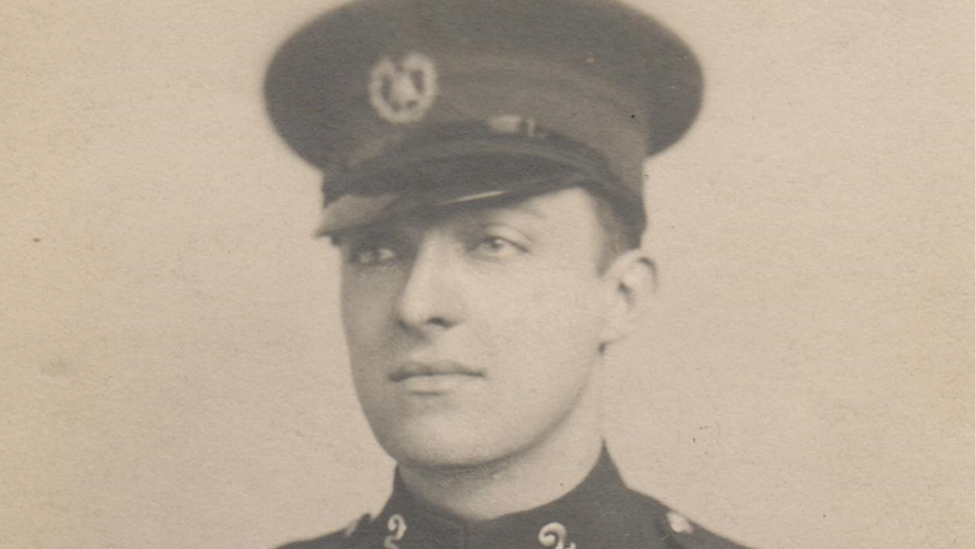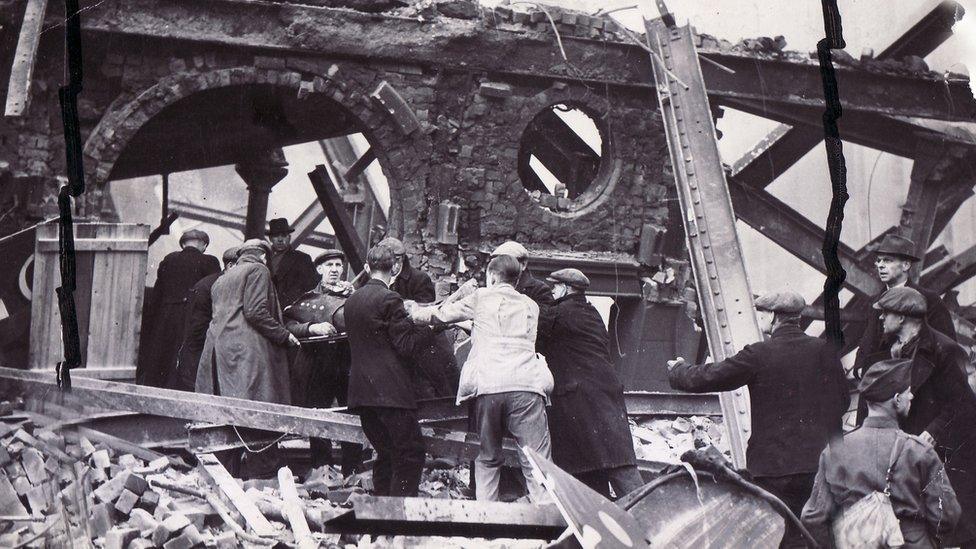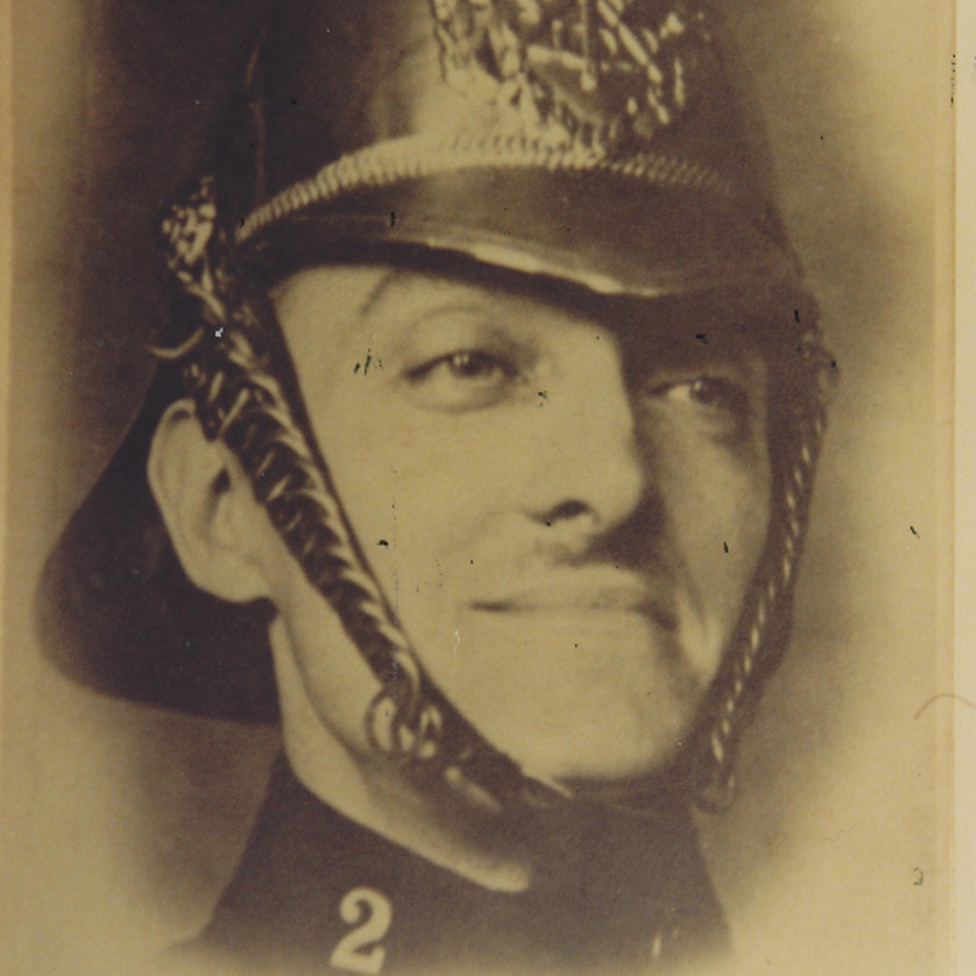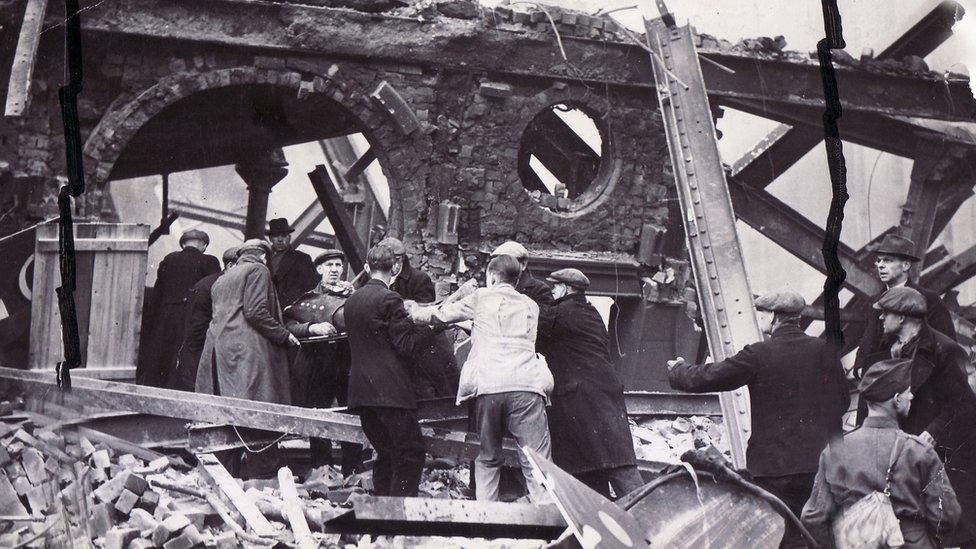Sheffield Blitz firefighter remembered on raid anniversary
- Published

Frederick Parkes Spencer was on duty at the service headquarters at Division Street when the raid started
A firefighter killed in the 1940 Sheffield Blitz is among the victims being remembered 80 years after air raids wreaked devastation on the city.
Hundreds of people died during German bombing raids over two nights starting on 12 December 1940.
Frederick Parkes Spencer was the only full-time police fireman, as they were then known, to be killed.
He died, along with auxiliary fireman Stanley Slack, tackling the aftermath of the bombing of The Empire Theatre.
The theatre in Charles Street had been hit and severely damaged and was on fire, but the two men had gone to help anybody still inside.

Atkinsons department store on the Moor was also destroyed in the Blitz that began on 12 December
Anne Whiteley, one of Mr Spencer's relatives, said: "The night of the Blitz it had been half-day closing, so Sheffield was busy, as it had always been a popular night for going out to theatres, cinemas and dance halls."
Henry Hall and his Orchestra were on at the Empire that evening.
The air raid warning sounded at 19:00 GMT and enemy planes were soon overhead, Ms Whiteley said.


The Marples Hotel was the site of the worst loss of life
The Sheffield Blitz
Codenamed Operation Crucible by the Germans
In all, almost 700 people were killed and 82,000 city houses out of 150,000 were damaged
The bombardment by about 330 aircraft on 12-13 December 1940 lasted for nine hours
The Moor was devastated along with Devonshire Green while City Hall and Sheffield United's Bramall Lane football ground were damaged
About 70 people died when The Marples Hotel on Fitzalan Square was bombed
A second raid on 15-16 December hit the industrial east of the city
Mains water supplies quickly ran out and water needed to be relayed from public baths and even the River Don for firefighting
Further raids were mounted by the Luftwaffe on the city, but not of the intensity of the December 1940 raids.
Source: SYFRS and Sheffield City Council


Police firemen had powers to arrest offenders and jail them if needed
Jack Spencer, Frederick's younger brother who was on leave from the Royal Navy, was "only able to identify him from his brass helmet and the number two on his uniform, as he was so badly injured", Ms Whiteley added.
Frederick Spencer was given a posthumous bravery award, later displayed at the National Emergency Services Museum in Sheffield.
Buried in the city's Woodhouse Cemetery, his headstone reads: "Died as a result of enemy action".
Today's Chief Fire Officer Alex Johnson said: "As the events of World War Two begin to fade from living memory, we believe it's even more important than ever to tell stories like Frederick Parkes Spencer and all the other men and women who lost their lives trying to protect Sheffield."

Bomb damage at Walker and Hall near Sheffield Central Library

Follow BBC Yorkshire on Facebook, external, Twitter, external and Instagram, external. Send your story ideas to yorkslincs.news@bbc.co.uk or send video here.
Related topics
- Published10 December 2019
